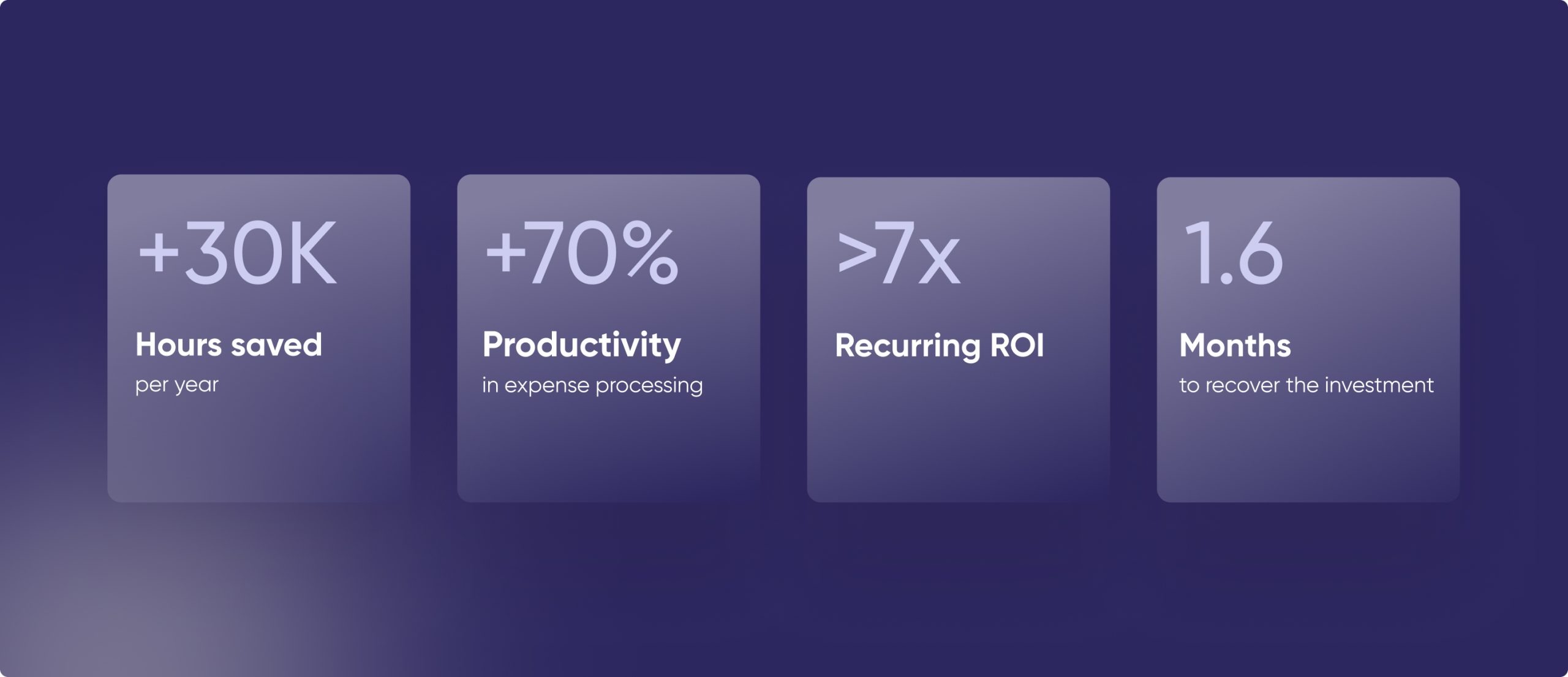In today’s business world, expense management can have a great impact on an organisation’s financial health. With business travel and subsequent expenses expected to rise over the next few years, controlling business expenses is more important than ever.
To ensure they can control all company spending, companies need to optimise their processes and rely on a robust expense management tool to handle expense reports effortlessly. Yet, many still trust outdated methods such as spreadsheets, paper reports and other manual processes to control their spending.
The impact of manual expense processes
Relying on a traditional expense management process can greatly affect costs, posing policy breaches and fraud risks. However, its greatest impact is, undoubtedly, on productivity, with the GBTA stating that a single expense report can take, on average, 20 minutes to complete.
But what does that mean, exactly? Well, it all comes down to simple math. If a single employee submits 10 expense reports a month, that’s over 3 hours of work. We’re talking 40 hours a year, a whole work week. Now multiply that by 100 employees, and we’re looking at about 400 work hours per year.
The best way to cut down on these hours is to implement an advanced expense management system to streamline these processes and save time. But how much time are we talking about?
How much time can you save with an expense management tool?
It might seem like an easy question, but different variants come into play in this equation. The company size, number of employees, and industry can affect the results. In Rydoo’s 2024 whitepaper, The ROI of best-of-breed expense management solutions, Roland Berger, an international management consultancy firm, drew data from a multinational professional services company with 12,000 users who actively submit expenses.
The report gathered insights on the performance of advanced expense management software and compared it to manual processes and legacy systems. The results highlight the time savings, productivity gains, and return on investment (ROI) across the different platforms so leaders can better understand how much value advanced solutions can bring to their organisation.
The key findings show that companies can save over 30,000 hours a year by switching to digital expense software compared to Excel or other digital legacy systems. With a streamlined system like Rydoo’s, employees snap a picture of the receipt. The software then reads and populates the claim with all the key information, and it’s ready to be submitted. All this is done in 10 seconds instead of 61, which is the time it would take them with either Excel or outdated software.
Approval and processing times for each expense are significantly reduced with advanced solutions, averaging around 35 seconds in total. In contrast, using Excel or legacy systems can take over 130 seconds.
This translates to a productivity boost above 70%, and its results will have long-term effects beyond time savings. Aside from the tangible benefits, implementing a digital expense management process will reduce employee frustration, as they can cut down on submission and reimbursement times, with payback periods dropping to less than two months. Finance teams gain higher data analysis capabilities to make more informed business decisions, and leaders have the flexibility to adjust the process when they’re ready to scale.
What about costs?
Implementing a new expense management platform implies costs. There’s no easy answer to this question, as SaaS providers consider multiple factors when defining their fees, such as the number of users, functionality, or the amount of data stored. Rydoo, for instance, uses a pricing model where you only pay for active users, which refers to employees who actively use the platform.
Other costs need to be taken into account during the onboarding stage. Analysis of providers, technical implementation costs and training and support for the team, which are crucial to ensure a smooth transition, should all be factored into the budget.
While the initial costs of migrating to a new platform are important for the consideration stage, the long-term results and return on investment need to be taken into account. Embracing advanced solutions can help finance departments and leaders achieve higher efficiency, save costs, and gain a strategic advantage over their competitors.
Businesses that want to continue growing and stay at the forefront of innovation must embrace technology in all areas, including how they manage expenses. Implementing an advanced expense management system like Rydoo’s is proven to have great outcomes, especially when it comes to time savings.
If you’re looking for a solution for your organisation but are unsure of the advantages it can bring, read the The ROI of best-of-breed expense management solutions whitepaper. If you’re wondering how much your company can save, reach out to our team, and we’ll do a full and personalised ROI analysis.




